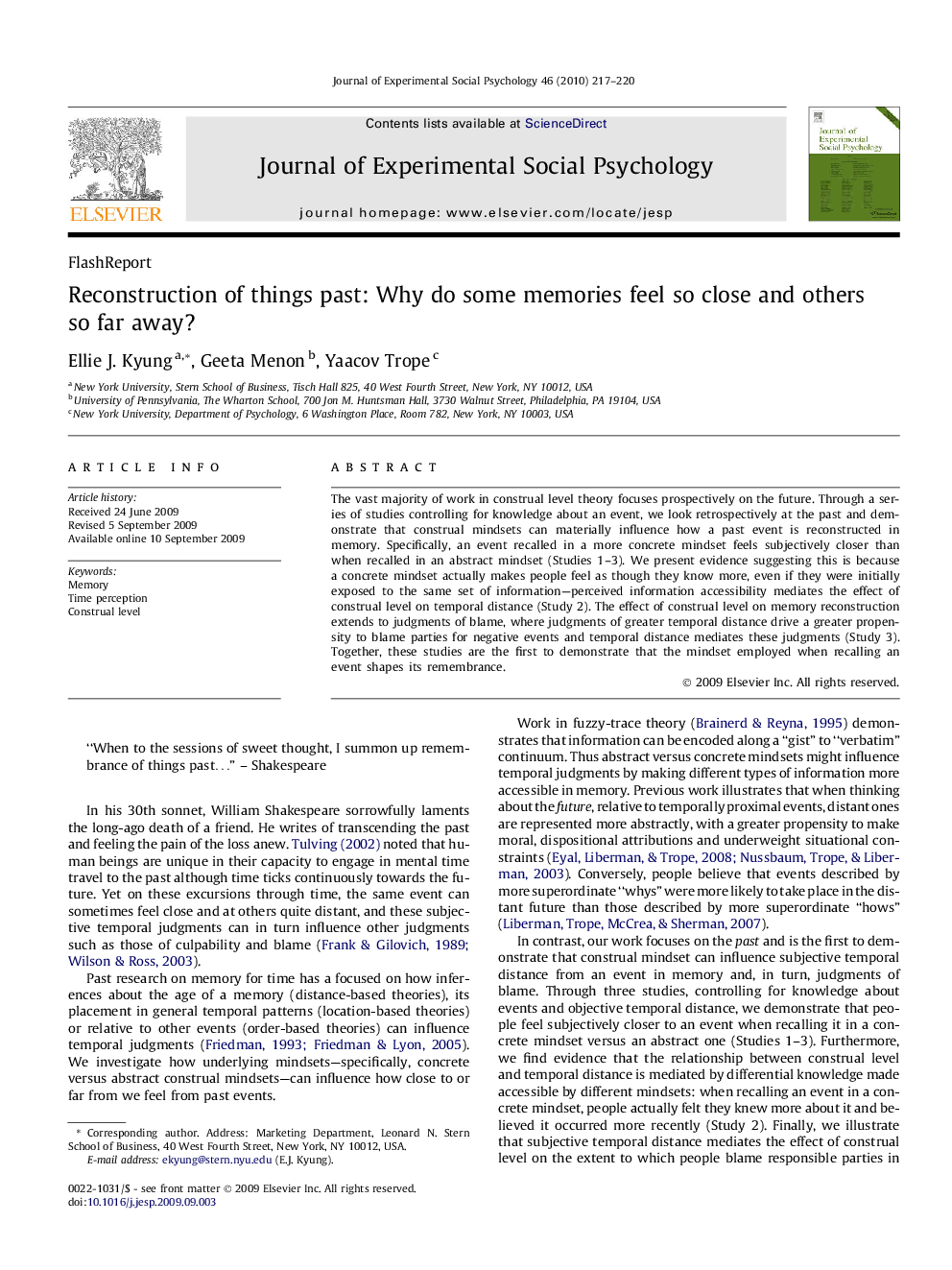| Article ID | Journal | Published Year | Pages | File Type |
|---|---|---|---|---|
| 947902 | Journal of Experimental Social Psychology | 2010 | 4 Pages |
The vast majority of work in construal level theory focuses prospectively on the future. Through a series of studies controlling for knowledge about an event, we look retrospectively at the past and demonstrate that construal mindsets can materially influence how a past event is reconstructed in memory. Specifically, an event recalled in a more concrete mindset feels subjectively closer than when recalled in an abstract mindset (Studies 1–3). We present evidence suggesting this is because a concrete mindset actually makes people feel as though they know more, even if they were initially exposed to the same set of information—perceived information accessibility mediates the effect of construal level on temporal distance (Study 2). The effect of construal level on memory reconstruction extends to judgments of blame, where judgments of greater temporal distance drive a greater propensity to blame parties for negative events and temporal distance mediates these judgments (Study 3). Together, these studies are the first to demonstrate that the mindset employed when recalling an event shapes its remembrance.
